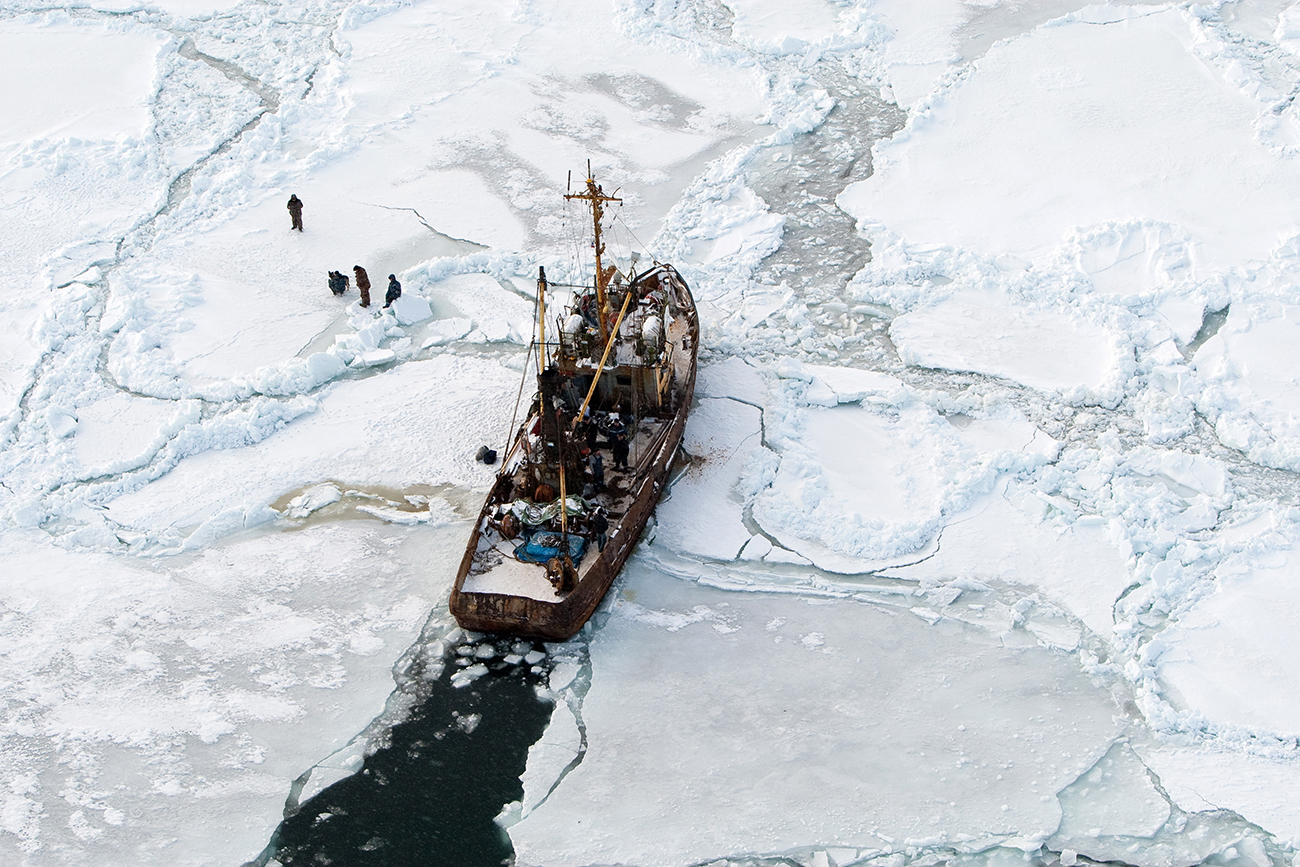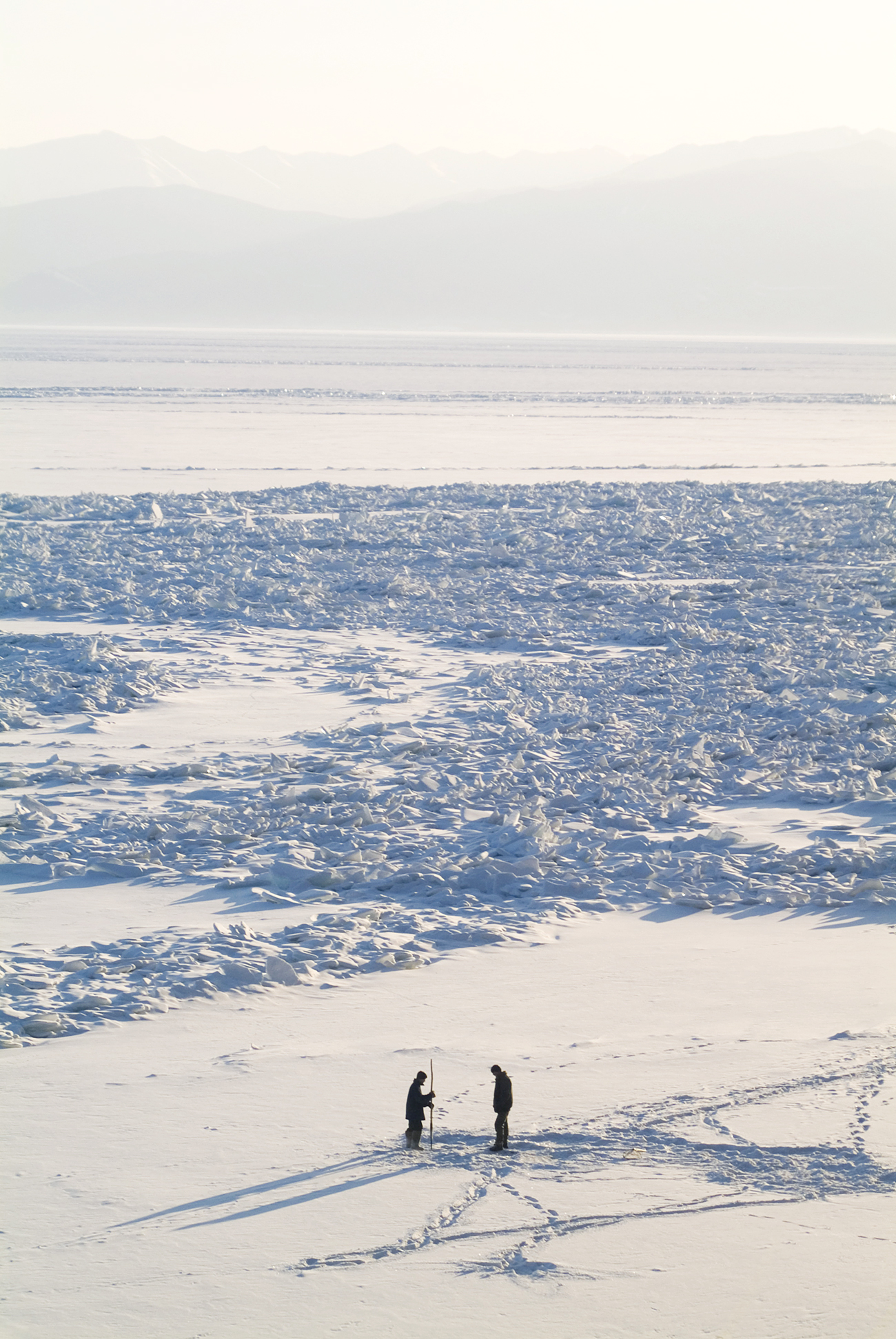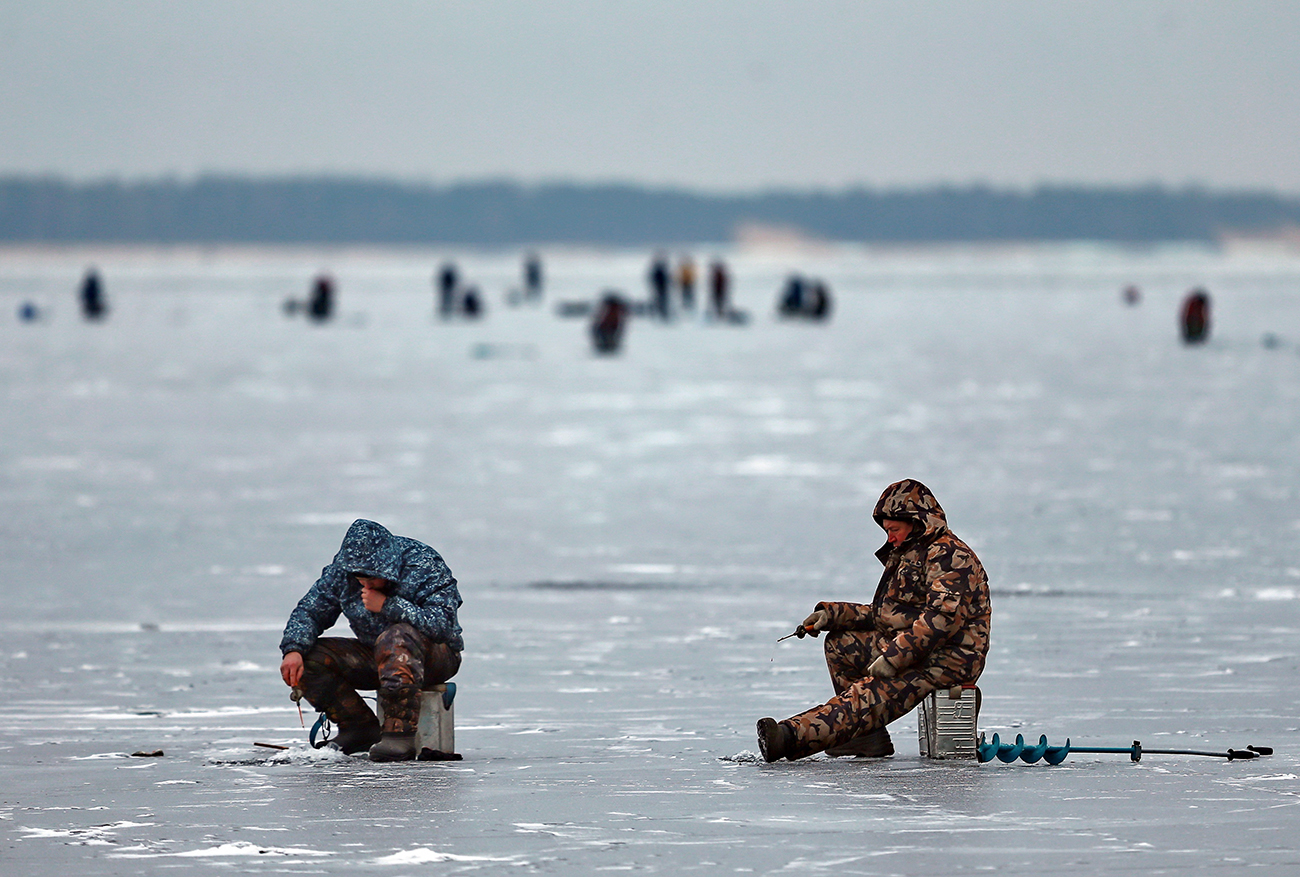Stranded in the Pacific: Russian ice fishermen defy death

"It takes minutes for an ice sheet to break away," said Alexey, one of the fishermen rescued in Mordvinov bay.
Sergey Krasnouhov/RIA Novosti![Sakhalin regional search-and-rescue base evacuates the crew of the ice-bound seiners that spent nearly a week at Terpeniya [Patience] Bay in Okhotsk Sea before they were rescued. Source: Sergey Krasnouhov/RIA Novosti. Source: Sergey Krasnouhov/RIA Novosti](https://cdni.rbth.com/rbthmedia/images/all/2017/03/02/ice-fishing-rian_00550524_b.jpg) Sakhalin regional search-and-rescue base evacuates the crew of the ice-bound seiners that spent nearly a week at Terpeniya [Patience] Bay in Okhotsk Sea before they were rescued. Source: Sergey Krasnouhov/RIA Novosti. Source: Sergey Krasnouhov/RIA Novosti
Sakhalin regional search-and-rescue base evacuates the crew of the ice-bound seiners that spent nearly a week at Terpeniya [Patience] Bay in Okhotsk Sea before they were rescued. Source: Sergey Krasnouhov/RIA Novosti. Source: Sergey Krasnouhov/RIA Novosti
Mordvinov bay, located on the southeast coast of Sakhalin Island (3,800 miles east of Moscow) in the Sea of Okhotsk, is once again all over local news. The reason has nothing to do with the bay’s natural beauty, but rather it’s due to the ice that, driven by warm weather and wind, drifts away from the island.
Numerous signs with the warnings, "walking on the ice is extremely unsafe," dot the coast. Still, local anglers pay no heed. Most island inhabitants who are not employed by oil or gas companies don’t really have another choice to make a living except for fishing, and it’s a risky business on Sakhalin.
Gone with the wind
In the last 10 days of February alone, 35 fishermen were carried into the Sea of Okhotsk - eight people on Feb. 17, another seven on Feb. 24 and a whole group of 20 on Feb. 25. They were all rescued by the Sakhalin Oblast EMERCOM department, but things do not always go smoothly. When the emergency response workers can’t get to them by boat or by helicopter, fishermen often die of hypothermia or drown while trying to get back to land on their own.
 "It takes minutes for an ice sheet to break away," said Alexey, one of the fishermen rescued in Mordvinov bay. Source: Konstantin Kokoshkin/Global Look Press
"It takes minutes for an ice sheet to break away," said Alexey, one of the fishermen rescued in Mordvinov bay. Source: Konstantin Kokoshkin/Global Look Press
There is no precise data on how many get stranded on ice floes each year, but it’s believed to be thousands. "It takes minutes for an ice sheet to break away," said Alexey, one of the fishermen rescued in Mordvinov bay. "In the morning, the weather was great, it was sunny, there was no wind. But in the afternoon, a snowstorm began suddenly. The ice is now about 18 inches thick, but a light wind is all it takes for it to start cracking. When you’re three miles away from shore, there is no way to make it back before the crack gets too wide. I’m not Ben Johnson, you know. To make matters worse, you have to wade knee-deep through the snow, and you can’t see a thing... "
Despite all he had to endure, Alexey went back to fish the next day. "What can a man do? I need to make ends meet and to provide for my family, don’t I?" There are thousands of people like him. As another angler explained, "fishermen’s cars fill all the space along the road from Okhotskoye village to the bank of Lake Tunaicha (about half a mile away); they are parked on both sides of the road right next to each other."
No way to penalize fishermen
According to Sakhalin Oblast EMERCOM, rescue workers stay on duty round the clock and work as if a state of emergency was declared. Denis Ilyinov, head of one of the local emergency response teams, said that despite the fact that anglers are constantly warned about the hazards of ice fishing, they keep going far from shore each day to fish. There is no way to penalize them.
 Despite the fact that anglers are constantly warned about the hazards of ice fishing, they keep going far from shore each day to fish. Source: Vladimir Smirnov/TASS
Despite the fact that anglers are constantly warned about the hazards of ice fishing, they keep going far from shore each day to fish. Source: Vladimir Smirnov/TASS
"A couple of years ago, they were fined, but the fines were abolished by the court," said Ilyinov. "Back before that, during the Soviet times, those lucky enough to be given a ride in a chopper had to buy a ticket afterwards, and the price was sometimes more than they made in a month." No penalties of this kind exist any more, even though a sophisticated rescue effort involving helicopters, airboats and dozens of EMERCOM employees can cost the state up to a few million rubles.
Another EMERCOM officer, who requested to speak anonymously in order to speak more freely, said that, "Fishermen’s attitude frustrates us to no end! I’m almost tempted to tell them: screw you, go ahead and die, we won’t save you … We keep warning them, and they just don’t change. They take what we do for granted, and they are blatant about it."
As if to prove him right, almost 1,500 anglers went fishing in Mordvinov bay on March 1, displaying total disregard for the weather conditions, as the warm west wind and tidal waves already began destroying the ice near the shore. EMERCOM even held a briefing on the subject, issuing a warning to fishermen that a crack had already formed 1,600 feet from the shoreline, and, in case of emergency, no helicopter will be sent to search for them because of low clouds. However, few anglers abandoned the hazardous zone, forcing EMERCOM to place four additional patrol units along the bay’s coast.
Read more: ‘Storm of the year’ in Sochi in Instagram reports>>>
If using any of Russia Beyond's content, partly or in full, always provide an active hyperlink to the original material.
Subscribe
to our newsletter!
Get the week's best stories straight to your inbox